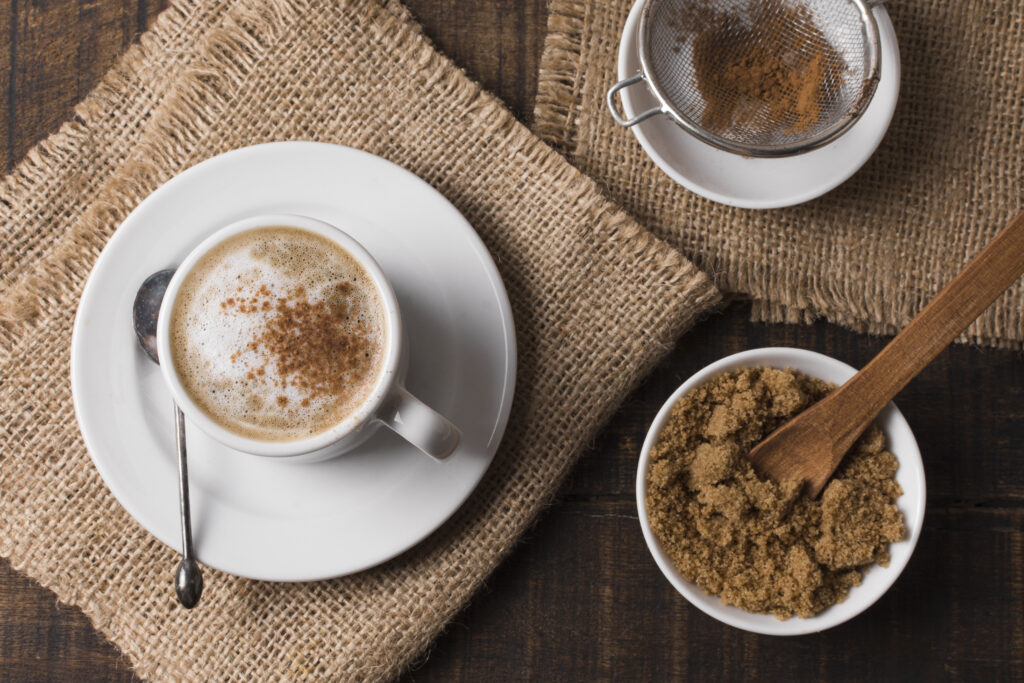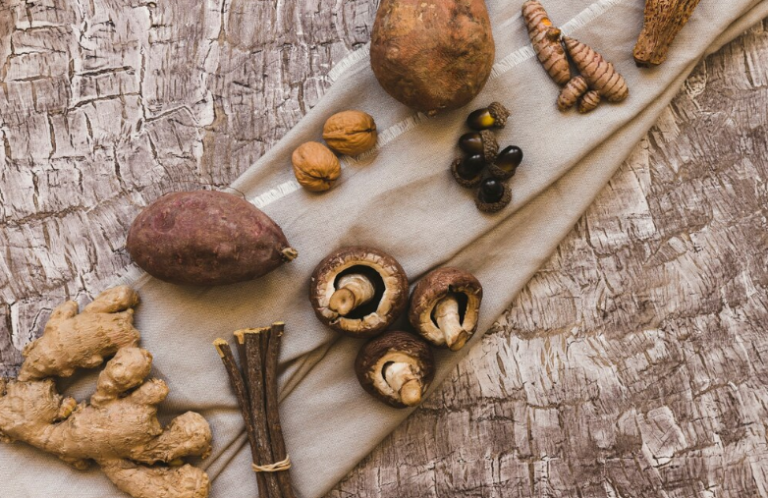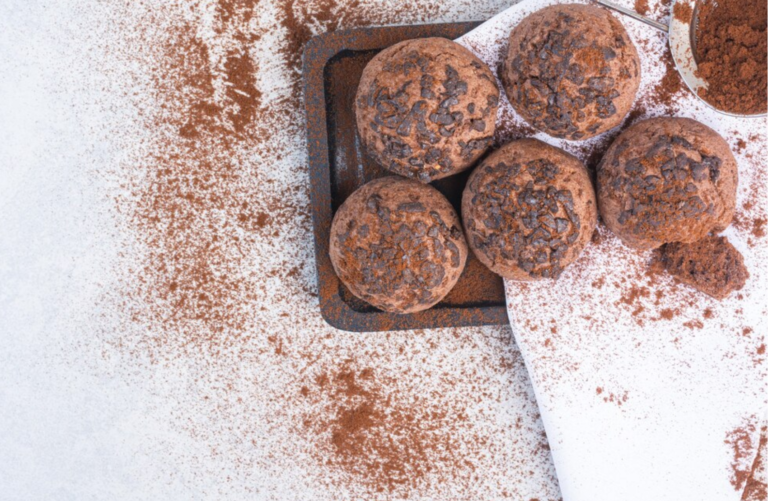
9 Delicious Ways to Brew the Perfect Cup of MannaBrew
MannaBrew is rapidly becoming a popular alternative for those who want to enjoy the rich, full-bodied experience of coffee without the caffeine that often comes with it. Made from nutrient-packed

It’s no surprise that more and more people are seeking healthy and delicious caffeine-free drinks with a growing focus on health and wellness.
Finding the right caffeine-free options can significantly impact your overall well-being.
Switching to caffeine-free beverages can help improve sleep and lower blood pressure.
Exploring these alternatives allows you to enjoy flavourful drinks without the jitters or crashes associated with caffeine.
Whether you’re sensitive to caffeine or want to cut back, plenty of great options exist.
Energise naturally, without caffeine – Click here to see our caffeine-free coffee alternatives.
Choosing caffeine-free coffee alternatives can have numerous benefits for your health and lifestyle.
Let’s explore why you might want to consider making the switch:
Switching to caffeine-free options can improve your overall health and align better with your lifestyle choices.
Now, let’s look at some popular alternatives.
If you want to eliminate caffeine, there are several delicious and healthy alternatives to traditional coffee.
Here are some of the most popular options:
MannaBrew Mesquite bean coffee is gaining popularity as a caffeine-free coffee alternative for its unique, slightly sweet and nutty flavour.
Made from roasted mesquite beans, this beverage offers a rich taste reminiscent of traditional coffee.
It’s naturally caffeine-free, making it a great option for those avoiding caffeine. Mesquite bean coffee is also high in fibre and protein, adding nutritional value to your cup.
People appreciate its ability to mimic the coffee experience without the stimulant effects.
Heirloom cacao has a rich and complex flavour profile, which mimics the taste of traditional coffee.
This type of cacao is derived from ancient varieties of cacao beans, known for their superior quality and unique taste.
Unlike regular coffee, heirloom cacao provides a natural energy boost without the jittery effects of caffeine.
It is also packed with antioxidants and other beneficial compounds that promote overall health.
As more people seek out healthier beverage options, heirloom cacao stands out for its ability to offer a satisfying coffee-like experience without the caffeine.
Mushroom coffee is a unique blend that combines ground mushrooms, such as Reishi, Chaga or Lion’s Mane, with other ingredients to create a distinctive beverage.
Unlike traditional coffee, mushroom coffee contains little to no caffeine, depending on the blend.
Aside from supporting immunity and overall wellness, these mushrooms have several health benefits.
Reishi mushrooms, for instance, are known for their immune-boosting properties, while lion’s mane is often associated with digestive health.
Spices, sweeteners, and milk alternatives can enhance the mild, earthy flavour of mushroom coffee.
It provides a unique and healthful way to start your day without caffeine.
Mushroom coffee offers a unique flavour and health benefits, making it an excellent choice for those seeking an alternative to traditional coffee.
Chicory coffee is made from the roasted root of the chicory plant, a member of the dandelion family.
It has a rich, earthy flavour that closely resembles coffee, making it a popular substitute.
Besides its taste, chicory coffee is known for its health benefits.
It is a good source of inulin, a type of prebiotic fibre that promotes digestive health and helps support gut bacteria.
In addition to its coffee-like taste, chicory coffee offers digestive benefits, making it a great choice for those seeking a healthy alternative.
Dandelion coffee is another excellent caffeine-free alternative.
This beverage is made by roasting the roots of the dandelion plant, which provide a slightly bitter taste similar to traditional coffee.
Dandelion roots are rich in antioxidants that help fight inflammation and support the immune system.
They are also known to aid in detoxification, particularly for liver health.
Dandelion coffee provides a unique, nutrient-rich option for those looking to avoid caffeine while still enjoying a coffee-like experience.
Herbal teas are a diverse and versatile category of caffeine-free beverages.
Popular varieties include chamomile, peppermint, and rooibos, each offering distinct flavours and health benefits.
The natural flavours of lemon and honey can enhance the taste of herbal tea, which can be enjoyed hot or iced.
It also offers a wide range of flavours and health benefits, making them a great caffeine-free choice for any time of day.
Turmeric latte, also known as golden milk, is a warm and comforting drink that’s been used in Ayurvedic medicine for centuries.
This beverage combines turmeric with milk (or a milk alternative) and spices like cinnamon, ginger, and black pepper.
Turmeric is the star ingredient known for its powerful anti-inflammatory and antioxidant properties, primarily due to the compound curcumin.
Its creamy texture and slightly spicy, earthy flavour make it a satisfying alternative to coffee.
Golden milk offers a soothing and healthful alternative to coffee, perfect for those who want a flavorful, caffeine-free beverage.
Exploring these caffeine-free coffee alternatives opens up a world of flavours and health benefits.
These beverages provide a satisfying alternative to traditional coffee and offer various health advantages.
So, why not try a few and discover your new favourite way to enjoy a caffeine-free drink?
Making caffeine-free coffee alternatives at home is easy and can be quite enjoyable.
Let’s go through some basic recipes and tips to enhance your homemade drinks:
Making these alternatives at home can be a fun and cost-effective way to enjoy delicious, caffeine-free drinks.
Experiment with different recipes to find your favourite flavours.
When considering a switch to caffeine-free coffee alternatives, it’s essential to understand how they compare to traditional coffee.
Let’s compare caffeine-free alternatives to traditional coffee in terms of taste, health benefits, and environmental impact:
Comparing these aspects can help you make an informed choice and enjoy your caffeine-free journey with the best options available.
Switching to caffeine-free coffee alternatives can bring many benefits.
From improving sleep to supporting liver health, these drinks offer a healthier and tasty way to enjoy your daily rituals.
Explore different options to find your favourite and embrace a caffeine-free lifestyle.
By exploring and embracing these alternatives, you can enjoy a flavorful and healthy way to start your day without relying on caffeine.
Reach out to us today to explore the world of energy without caffeine.

MannaBrew is rapidly becoming a popular alternative for those who want to enjoy the rich, full-bodied experience of coffee without the caffeine that often comes with it. Made from nutrient-packed

Choosing organic foods is not just about keeping up with a trend; it’s a deliberate and informed decision prioritising your health and overall well-being. Organic foods are cultivated without synthetic

Making cookies at home is a fun and rewarding activity and an opportunity to take control of the ingredients and flavours in your treats. By choosing cacao over processed cocoa,
© 2024 All Rights Reserved.